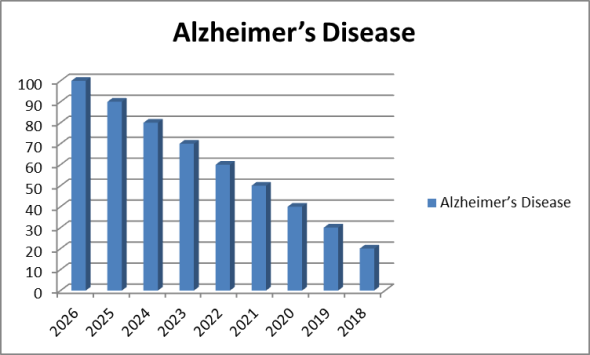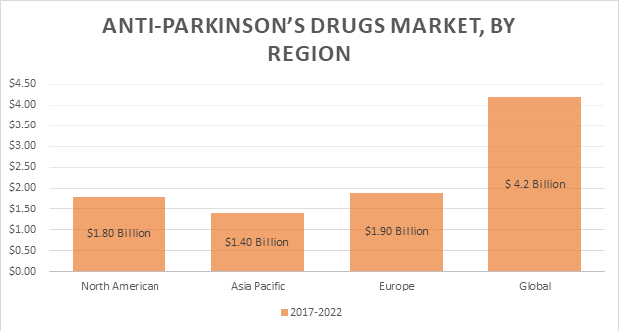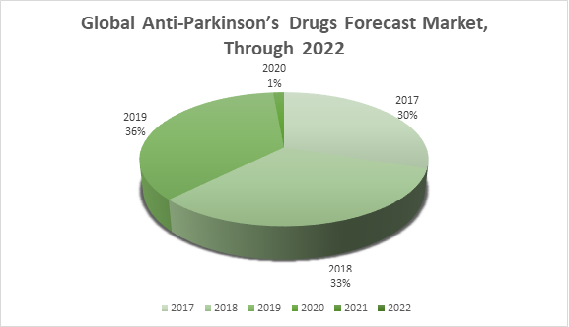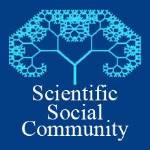Theme: New Scientific Discoveries and Technologies in Dementia Research
Dementia Conference 2020
Join us for 15th Annual Conference on Dementia and Alzheimer's Disease
Update your skills, enhance your knowledge base, and broaden your horizons—all in one place!
Dementia, Psychiatry, Neurology, Mental Health, Stress Management, Brain Disease, Alzheimer's Disease, Anxiety Disorders, Palliative care, Public Health,
Me Conferences invites all the participants from all over the world to attend ‘15th Annual Conference on Dementia and Alzheimer's Disease’ during June 25-26, 2020 at Abu Dhabi, UAE which includes prompt keynote presentations, workshops, special sessions, exhibitors, poster, oral presentations.
Can we cure Dementia?
Discovering the friend or family member has Alzheimer's or other types of dementia is Scary. One of the primary inquiry is individuals inquires as to whether there is a cure or an approach to recouping? Not all loss of memory is recognized with Alzheimer's or dementia. There are different reasons you may encounter memory issues including thyroid issues, stretch and vitamin insufficiencies or certain medicines.
There is currently no "cure" for dementia. Dementia is triggered by different diseases, that’s why it is impossible that there will be a solitary cure for dementia.
Dementia, as well as Alzheimer’s disease, is one of the biggest global public health challenges facing our generation. Worldwide, at least 44 million people are living with insanity this range is anticipated to double by 2030 and quite triple by 2050 to 115 million. Much of the increase will be in developing countries like Western Europe and North America. Already 62% of individuals with Dementia board developing countries. Today, over 35 million individuals worldwide presently abide the condition. No medicines out there to slow or stop the cerebrum damage brought about by Alzheimer's malady, a few prescriptions can briefly help improve the side effects of dementia for certain individuals. In 20 Years, it is estimated that 1.4 million Canadians will have dementia, costing the economy almost $300 billion per year. Globally, dementia cost $600 billion a year.
Why to attend???
Dementia Conference 2020 will provide an opportunity for all stakeholders working on Alzheimer’s disease and Dementia to talk about novel research. Dementia Conference 2020 can assemble notable speakers, neurologist’s and Dementia researchers from both academia and health care industry will join together to discuss their views and research. The conference will be comprised of sessions by world category specialists in the field of neurology. In dementia Conference 2020, international symposiums, B2B conferences, international workshops will be organized to debate the particular topics within the field of dementia and Alzheimer’s disease.
Target Audience:
- Neurologists and Directors
- Physicians
- Neuroscientists
- Specialists
- researchers
- Health care professionals
- Professors
- Industrial Experts
- Neurosurgeons
- Psychiatrist
- Nutritional Scientists
- Lecturers and Students from Academia in the study of Dementia
- Students from Academia in the research of Neurology
Track 1: Dementia
Dementia is a broad category of brain diseases that cause a long term and often gradual decrease in the ability to think and remember that is great enough to affect a person's daily functioning. Other common symptoms include emotional problems, problems with language, and a decrease in motivation. A person's consciousness is usually not affected. A dementia results in a change from a person's usual mental functioning and a greater decline than one would expect due to aging. These diseases also have a significant effect on a person's caregivers.
Related: Dementia Conferences | Alzheimers Conferences | Neurology Conferences | Neuro Disorders Conferences | Neuroscience Conferences
Related Societies & associations:
The alzheimer's association, Dementia society of America, Alzheimer's society, lewy body dementia association, Dementia uk, Alzheimer Scotland, Alzheimers.net, Alzheimer's Australia, National council of certified dementia practioners, The alzheimer’s disease association (ada) , The Malta dementia society
Track 2: Alzheimers disease
Alzheimers disease (AD), also referred to simply as Alzheimer's, is a chronic neurodegenerative disease that usually starts slowly and worsens over time. It is the cause of 60% to 70% of cases of dementia. The most common early symptom is difficulty in remembering recent events short-term memory loss. [As the disease advances, symptoms can include problems with language, disorientation (including easily getting lost), mood swings, loss of motivation, not managing self-care, and behavioral issues. As a person's condition declines, they often withdraw from family and society. Gradually, bodily functions are lost, ultimately leading to death.
Related: Dementia Conferences | Alzheimers Conferences | Neurology Conferences | Neuro Disorders Conferences | Neuroscience Conferences
Related Societies & associations:
The alzheimer's association, Dementia society of America, Alzheimer's society, lewy body dementia association, Dementia uk, Alzheimer Scotland, Alzheimers.net, Alzheimer's Australia, National council of certified dementia practioners, The alzheimer’s disease association (ada) , The Malta dementia society
Track 3: Neurodegenerative Diseases
Neurodegenerative diseases cause your brain and nerves to deteriorate over time. They can change your personality and cause confusion. They can also destroy your brain’s tissue and nerves. Some brain diseases, such as Alzheimer’s disease, may develop as you age. They can slowly impair your memory and thought processes. Other diseases, such as Tay-Sachs disease, are genetic and begin at an early age.
Related: Dementia Conferences | Alzheimers Conferences | Neurology Conferences | Neuro Disorders Conferences | Neuroscience Conferences
Related Societies & associations:
The alzheimer's association, Dementia society of America, Alzheimer's society, lewy body dementia association, Dementia uk, Alzheimer Scotland, Alzheimers.net, Alzheimer's Australia, National council of certified dementia practioners, The alzheimer’s disease association (ada) , The Malta dementia society
Track 4: Brain diseases
The brain is body’s control center. It’s part of the nervous system, which also includes the spinal cord and a large network of nerves and neurons. Together, the nervous system controls everything from your five senses to the muscles throughout your body. When your brain is damaged, it can affect many different things, including your memory, your sensation, and even your personality. Brain disorders include any conditions or disabilities that affect your brain. This includes those conditions that are caused by illness, genetics, or traumatic injury.
Related: Dementia Conferences | Alzheimers Conferences | Neurology Conferences | Neuro Disorders Conferences | Neuroscience Conferences
Related Societies & associations:
The alzheimer's association, Dementia society of America, Alzheimer's society, lewy body dementia association, Dementia uk, Alzheimer Scotland, Alzheimers.net, Alzheimer's Australia, National council of certified dementia practioners, The alzheimer’s disease association (ada) , The Malta dementia society
Track 5: Anxiety & Depression
Apathy, depression and anxiety are common conditions experienced by people with dementia. They are known as psychological conditions because they can affect a person’s emotional and mental health. Anxiety is more than just feeling stressed or worried. Anxious feelings are a normal reaction to a situation where a person feels under pressure and usually pass once the stressful situation has passed, or the ‘stressor’ is removed. Depression affects how a person feels about themselves. A person may lose interest in work, hobbies and doing things he or she normally enjoys. Some people may lack energy, have difficulty sleeping or sleep more than usual, while some people feel anxious or irritable and find it hard to concentrate.
Related: Dementia Conferences | Alzheimers Conferences | Neurology Conferences | Neuro Disorders Conferences | Neuroscience Conferences
Related Societies & associations:
The alzheimer's association, Dementia society of America, Alzheimer's society, lewy body dementia association, Dementia uk, Alzheimer Scotland, Alzheimers.net, Alzheimer's Australia, National council of certified dementia practioners, The alzheimer’s disease association (ada) , The Malta dementia society
Track 6: Parkinson’s diseases
Parkinson's disease (PD) is a chronic and progressive movement disorder, meaning that symptoms continue and worsen over time. Nearly one million people in the US are living with Parkinson's disease. The cause is unknown, and although there is presently no cure, there are treatment options such as medication and surgery to manage its symptoms.
Related: Dementia Conferences | Alzheimers Conferences | Neurology Conferences | Neuro Disorders Conferences | Neuroscience Conferences
Related Societies & associations:
The alzheimer's association, Dementia society of America, Alzheimer's society, lewy body dementia association, Dementia uk, Alzheimer Scotland, Alzheimers.net, Alzheimer's Australia, National council of certified dementia practioners, The alzheimer’s disease association (ada) , The Malta dementia society
Track 7: Schizophrenia
Schizophrenia is a chronic brain disorder that affects about one percent of the population. When schizophrenia is active, symptoms can include delusions, hallucinations, trouble with thinking and concentration, and lack of motivation. However, when these symptoms are treated, most people with schizophrenia will greatly improve over time.
Related: Dementia Conferences | Alzheimers Conferences | Neurology Conferences | Neuro Disorders Conferences | Neuroscience Conferences
Related Societies & associations:
The alzheimer's association, Dementia society of America, Alzheimer's society, lewy body dementia association, Dementia uk, Alzheimer Scotland, Alzheimers.net, Alzheimer's Australia, National council of certified dementia practioners, The alzheimer’s disease association (ada) , The Malta dementia society
Track 8: Autism
Autism is a lifelong developmental disability that affects how people perceive the world and interact with others. Autistic people see, hear and feel the world differently to other people. If you are autistic, you are autistic for life autism is not an illness or disease and cannot becured. Often people feel being autistic is a fundamental aspect of their identity. Autism is a spectrum condition. All autistic people share certain difficulties, but being autistic will affect them in different ways. Some autistic people also have learning disabilities, mental health issues or other conditions, meaning people need different levels of support. All people on the autism spectrum learn and develop. With the right sort of support, all can be helped to live a more fulfilling life of their own choosing.
Related: Dementia Conferences | Alzheimers Conferences | Neurology Conferences | Neuro Disorders Conferences | Neuroscience Conferences
Related Societies & associations:
The alzheimer's association, Dementia society of America, Alzheimer's society, lewy body dementia association, Dementia uk, Alzheimer Scotland, Alzheimers.net, Alzheimer's Australia, National council of certified dementia practioners, The alzheimer’s disease association (ada) , The Malta dementia society
Track 9: Diagnosis of dementia
Diagnosing dementia and determining what type it is can be challenging. A diagnosis of dementia requires that at least two core mental functions be impaired enough to interfere with daily living. They are memory, language skills, ability to focus and pay attention, ability to reason, solve problem and visual perception.
Related: Dementia Conferences | Alzheimers Conferences | Neurology Conferences | Neuro Disorders Conferences | Neuroscience Conferences
Related Societies & associations:
The alzheimer's association, Dementia society of America, Alzheimer's society, lewy body dementia association, Dementia uk, Alzheimer Scotland, Alzheimers.net, Alzheimer's Australia, National council of certified dementia practioners, The alzheimer’s disease association (ada) , The Malta dementia society
Track 10: Dementia Management
There is no cure for dementia, so the chief goals of treatment are to: Maintains quality of life, Enhances cognition, mood and behaviour, Fosters a safe environment, Promotes social engagement, Treatment of cognitive symptoms, Managing behavioural symptoms, pharmacological treatments, non-pharmacological strategies, Dementia friendly Environments.
Related: Dementia Conferences | Alzheimers Conferences | Neurology Conferences | Neuro Disorders Conferences | Neuroscience Conferences
Related Societies & associations:
The alzheimer's association, Dementia society of America, Alzheimer's society, lewy body dementia association, Dementia uk, Alzheimer Scotland, Alzheimers.net, Alzheimer's Australia, National council of certified dementia practioners, The alzheimer’s disease association (ada) , The Malta dementia society
Track 11: Animal Models in Dementia
Animal models have contributed noticeably to these advances and are an indispensable part in the evaluation of therapeutics. This review is an exhaustive study of animal models of dementia and cognitive dysfunction. A thorough Dementia and Alzheimers Disease and critical evaluation of current rodent models of dementia and discussion about their role in drug discovery and development have been carried out.
Related: Dementia Conferences | Alzheimers Conferences | Neurology Conferences | Neuro Disorders Conferences | Neuroscience Conferences
Related Societies & associations:
The alzheimer's association, Dementia society of America, Alzheimer's society, lewy body dementia association, Dementia uk, Alzheimer Scotland, Alzheimers.net, Alzheimer's Australia, National council of certified dementia practioners, The alzheimer’s disease association (ada) , The Malta dementia society
Track 12: Drug Development in Dementia
Dementia is a progressive, irreversible decline in cognition that, by definition, impacts on a patient pre-existing level of functioning. The clinical syndrome of dementia has several aetiologias of which Alzheimer’s disease (AD) is the most common. Drug development in AD is based on evolving pathophysiological theory. Disease modifying approaches include the targeting of amyloid processing, aggregation of tau, insulin signaling, neuroinflammation and neurotransmitter dysfunction, with efforts thus far yielding abandoned hopes and ongoing promise. Reflecting its dominance on the pathophysiological stage the amyloid cascade is central to many of the emerging drug therapies.
Related: Dementia Conferences | Alzheimers Conferences | Neurology Conferences | Neuro Disorders Conferences | Neuroscience Conferences
Related Societies & associations:
The alzheimer's association, Dementia society of America, Alzheimer's society, lewy body dementia association, Dementia uk, Alzheimer Scotland, Alzheimers.net, Alzheimer's Australia, National council of certified dementia practioners, The alzheimer’s disease association (ada) , The Malta dementia society
Track 13: Recent Advancement in Treatments of Dementia
Epidemiological studies show that, worldwide, the number of people aged over 65 will increase substantially in the next decades and that a considerable proportion of this population will develop dementia. Ample evidence shows that ageing is associated with a high rate of painful conditions, irrespective of cognitive status. The number of patients with dementia who will experience painful conditions is therefore likely to increase.
Related: Dementia Conferences | Alzheimers Conferences | Neurology Conferences | Neuro Disorders Conferences | Neuroscience Conferences
Related Societies & associations:
The alzheimer's association, Dementia society of America, Alzheimer's society, lewy body dementia association, Dementia uk, Alzheimer Scotland, Alzheimers.net, Alzheimer's Australia, National council of certified dementia practioners, The alzheimer’s disease association (ada) , The Malta dementia society
Track 14: Clinical Trials & Case Reports in Dementia
The goal of much of the research activity in dementia is to develop interventions for 'treatment' or even 'cure'. The classical bench to bedside paradigm has been disappointing in dementia. There is a long list of putative dementia treatment compounds with favorable pre-clinical and early phase trial data that have been neutral or even potentially harmful when assessed in phase III studies. Lewy body dementia is a common but frequently under diagnosed cause of dementia often mistaken for the more familiar entity of Alzheimer disease. Clinically the distinction is important, because it can have profound implications for management. The diagnosis of Lewy body dementia has important implications. It is associated with a high incidence of neuroleptic sensitivity, necessitating great caution in the use of these common antipsychotic agents. Early studies indicate cholinesterase inhibitors can be beneficial for treating the hallucinations and behavior disturbances that afflict these patients and might also improve cognition.
Related: Dementia Conferences | Alzheimers Conferences | Neurology Conferences | Neuro Disorders Conferences | Neuroscience Conferences
Related Societies & associations:
The alzheimer's association, Dementia society of America, Alzheimer's society, lewy body dementia association, Dementia uk, Alzheimer Scotland, Alzheimers.net, Alzheimer's Australia, National council of certified dementia practioners, The alzheimer’s disease association (ada) , The Malta dementia society
Track 15: Psychiatry Mental health disorders:
A psychiatric disorder may also cause physical symptoms, such as a headache, back pain, or stomach pain. If you’re being evaluated for a psychiatric disorder, be sure to tell your doctor about any physical symptoms you’re having, including unexplained aches and pains.
Mental health nursing or psychiatry nursing is the speciality of nursing that cares for people of all ages with mental distress or illness such as schizophrenia, bipolar disorder, depression, psychosis it is a stressful and emotionally draining job as well as a rewarding job for once career.
Related: Dementia Conferences | Alzheimers Conferences | Neurology Conferences | Neuro Disorders Conferences | Neuroscience Conferences
Related Societies & associations:
The alzheimer's association, Dementia society of America, Alzheimer's society, lewy body dementia association, Dementia uk, Alzheimer Scotland, Alzheimers.net, Alzheimer's Australia, National council of certified dementia practioners, The alzheimer’s disease association (ada) , The Malta dementia society
Track 16: Public Health Nursing:
Public Health is outlined because the science of protective the security and up the health of communities through education, political, and analysis for wellness and injury hindrance. The definition of public health is completely different for each person. whether or not you wish to crunch numbers, conduct laboratory or field analysis, formulate policy, or work directly with folks to assist improve their health, there's an area for you within the field of public health. Being a public professional person allows you to figure round the world, address health issues of communities as an entire, and influence policies that have an effect on the health of societies.
Related: Dementia Conferences | Alzheimers Conferences | Neurology Conferences | Neuro Disorders Conferences | Neuroscience Conferences
Related Societies & associations:
The alzheimer's association, Dementia society of America, Alzheimer's society, lewy body dementia association, Dementia uk, Alzheimer Scotland, Alzheimers.net, Alzheimer's Australia, National council of certified dementia practioners, The alzheimer’s disease association (ada) , The Malta dementia society
Track 17: Neurosurgery
Neurosurgery is a medical specialty concerned with the prevention, diagnosis and treatment of patients with injuries or diseases/disorders of the brain, spinal cord and peripheral nerves all inner parts of the body. A physician who specializes in neurosurgery is known as Neurosurgeon. Medically trained neurosurgical specialists help patients suffering from back and neck pain as well as other illnesses ranging from trigeminal neuralgia to head injury and Parkinson's disease.
Related: Dementia Conferences | Alzheimers Conferences | Neurology Conferences | Neuro Disorders Conferences | Neuroscience Conferences
Related Societies & associations:
The alzheimer's association, Dementia society of America, Alzheimer's society, lewy body dementia association, Dementia uk, Alzheimer Scotland, Alzheimers.net, Alzheimer's Australia, National council of certified dementia practioners, The alzheimer’s disease association (ada) , The Malta dementia society
Track 18: Neurocardiology and Strokes
A stroke is a "brain attack". It can appear to anyone at any time when poor blood flow to an area of brain and results in cell death. When this happens brain cells are dispossessed of oxygen and begin to die. When brain cells die during a stroke it controls ability by that area of the brain such as memory and muscle control is lost
Related: Dementia Conferences | Alzheimers Conferences | Neurology Conferences | Neuro Disorders Conferences | Neuroscience Conferences
Related Societies & associations:
The alzheimer's association, Dementia society of America, Alzheimer's society, lewy body dementia association, Dementia uk, Alzheimer Scotland, Alzheimers.net, Alzheimer's Australia, National council of certified dementia practioners, The alzheimer’s disease association (ada) , The Malta dementia society
Track 19: Vascular Dementia
Vascular Dementia is that the second most regular reason for insanity once Alzheimer's Diseases. Vascular changes that begin in mind territories that assume a key half in putt away and sick information could cause memory misfortune that appears particularly like Alzheimer's disease sickness. Vascular dementedness may be a decrease in intuition skills caused by conditions that sq.or diminish blood stream to the brain, denying mind cells of fundamental oxygen and supplements. Deficient blood stream can harm and, in the end, dead cells anyplace in the body. The mind has one in all the body's richest systems of veins and is especially helpless. In tube insanity, changes in speculation talents currently so happen suddenly following strokes that sq. important neural structure veins. A developing variety of specialists lean toward the expression "Vascular cognitive Impairment (VCI)" to "vascular dementia”. A few examinations have discovered that vascular changes and different neural structure irregularities could associate in ways in which improve the chance of dementedness finding. The analysis of dementia or mild psychological electric resistance is affirmed by neurocognitive testing, which has some hours of composed or mechanized tests that offer purpose by purpose assessment of reasoning skills, for instance, judgment, arranging, crucial thinking, thinking and memory.
Related: Dementia Conferences | Alzheimers Conferences | Neurology Conferences | Neuro Disorders Conferences | Neuroscience Conferences
Related Societies & associations:
The alzheimer's association, Dementia society of America, Alzheimer's society, lewy body dementia association, Dementia uk, Alzheimer Scotland, Alzheimers.net, Alzheimer's Australia, National council of certified dementia practioners, The alzheimer’s disease association (ada) , The Malta dementia society
The global dementia associated with Alzheimer’s disease market for the period 2018 to 2026. Rise in geriatric population, increased prevalence of Alzheimer’s, high unmet medical needs, and rich pipeline are likely to be major drivers of the global dementia associated with Alzheimer’s disease market during the forecast period.



- The Journal of the Alzheimer’s Association
- International Journal of Alzheimer's Disease
- Journal of Alzheimer’s Disease
- Journal of Community Health Research
- Asia Pacific Family Medicine
- Journal of School of Public Health and Institute of Public Health Research
- AIMS Public Health
- An International Journal on Alzheimer’s Disease and Associated Disorders
- African Journal of Primary Health Care & Family Medicine
- Indian Journal of Community Medicine
- The Global Voice on Dementia
- International Journal of Family Medicine
- National Journal of Community Medicine
Conference Highlights
- Dementia
- Alzheimers disease
- Vascular Dementia
- Schizophrenia
- Neurodegenerative Diseases
- Brain diseases
- Parkinson’s diseases
- Anxiety & Depression
- Animal Models in Dementia
- Autism
- Diagnosis of dementia
- Dementia Management
- Drug Development in Dementia
- Recent Advancement in Treatments of Dementia
- Clinical Trials & Case Reports in Dementia
- Psychiatry Mental health disorders
- Public Health Nursing
- Neurosurgery
- Neurocardiology and Strokes
To share your views and research, please click here to register for the Conference.
To Collaborate Scientific Professionals around the World
| Conference Date | June 25-26, 2020 | ||
| Sponsors & Exhibitors |
|
||
| Speaker Opportunity Closed | |||
| Poster Opportunity Closed | Click Here to View | ||
Useful Links
Special Issues
All accepted abstracts will be published in respective Our International Journals.
Abstracts will be provided with Digital Object Identifier by














